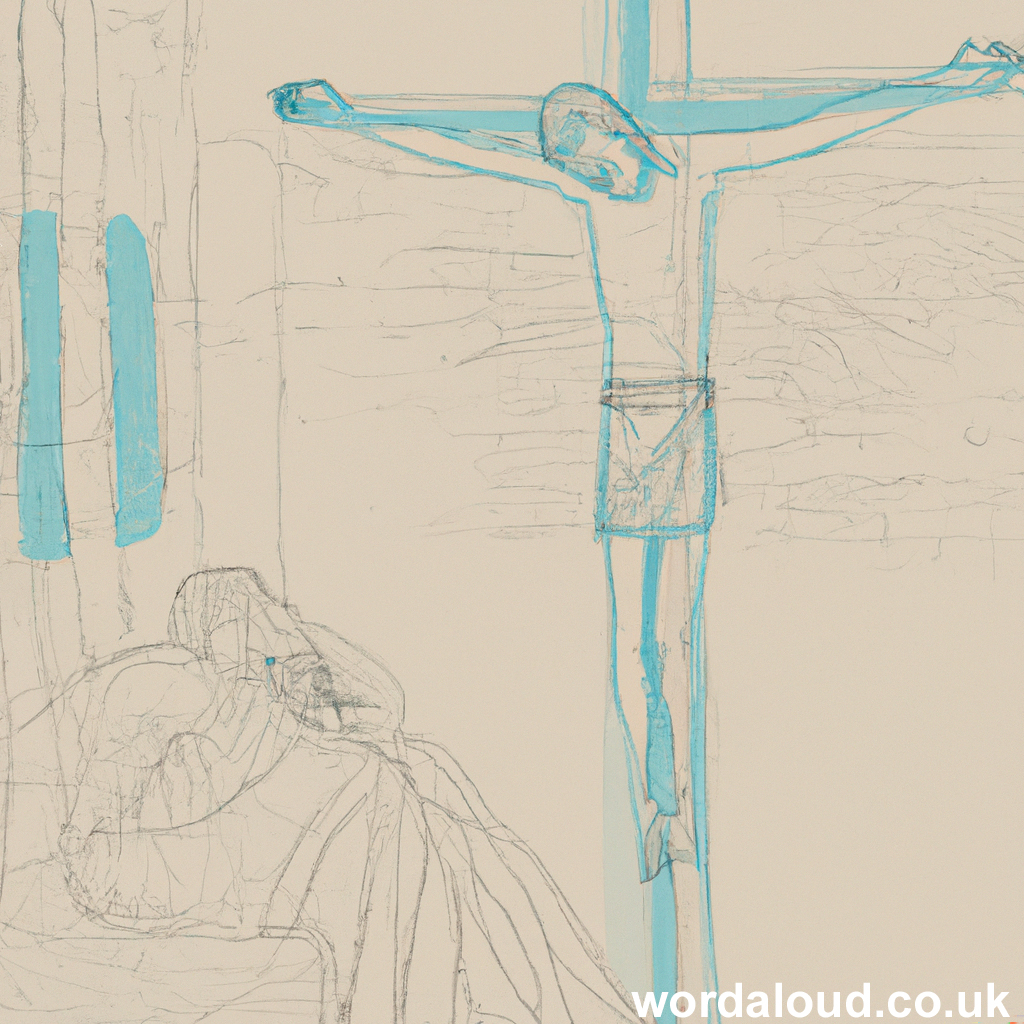Christian Art | Jesus Meets Mary And Mary
The Gospel Of Saint Matthew 28: 8-15 | King James Audio Bible | KJV
8 And they departed quickly from the sepulchre with fear and great joy; and did run to bring his disciples word.
9 ¶ And as they went to tell his disciples, behold, Jesus met them, saying, All hail. And they came and held him by the feet, and worshipped him.
10 Then said Jesus unto them, Be not afraid: go tell my brethren that they go into Galilee, and there shall they see me.
11 ¶ Now when they were going, behold, some of the watch came into the city, and shewed unto the chief priests all the things that were done.
12 And when they were assembled with the elders, and had taken counsel, they gave large money unto the soldiers,
13 Saying, Say ye, His disciples came by night, and stole him away while we slept.
14 And if this come to the governor’s ears, we will persuade him, and secure you.
15 So they took the money, and did as they were taught: and this saying is commonly reported among the Jews until this day.
In Matthew’s Gospel, the truth of Christ’s victory over death is told in an apocalyptic language, laden with symbolic meaning. There is a great earthquake, the angel descends from heaven to roll back the stone of Christ’s tomb, his appearance like lightning, his clothing white as snow. The guards are terrified, becoming like dead men, and the angel announces to Mary Magdalene and the other Mary, mother of James, that Christ is risen, that they must go and share the good news with Jesus’ disciples.
The women respond to the angel’s news with fear and joy. They are amazed by what is happening, and they respond with faith. They run to share the good news of Christ’s resurrection. Through belief, they are eager to tell the disciples about Jesus.
It is now that Jesus appears to the women, showing himself to them first, their reward for their faith and constancy. They recognize Jesus instantly and fall on their knees to worship him, taking hold of his feet. Jesus’ now is a glorified body. He is not bound to a particular place or time. He is freed from such limitations. We may look to Jesus’ glorious body with keen anticipation of our life to come. Yet Jesus is also physically tangible to the women. His presence can be physically touched. Now their joy is complete. Mary Magdalene and Mary, mother of James, are chosen by Jesus to go to tell the disciples where they will meet him. They become the first messengers of the good news.
The reaction of the chief priests and the elders of Jerusalem is to propagate a lie in order to try to ensure that the truth of Christ’s resurrection may not be known by the Jewish people. They must know that this is a lie, and so the evil of their actions is compounded further, as it is also by the bribery they must use to secure the soldiers’ complicity. It is saddening to hear of how the Jewish people were kept from the truth of Jesus. The lie spreads, and it is with us to this day on the lips of those who deny Christ.
We are warned by the account of the chief priests’ actions to be alert to those forces in our time which seek to deny Christ. We are asked to respond to the good news of Jesus’ resurrection which such unbounded freedom of faith as Mary Magdalene and Mary, mother of James, show when they meet Jesus and then rush to tell the disciples what has truly happened. We are asked to share with the people we know the truth of Christ.
‘He was led as a sheep to the slaughter, but he was not a sheep; he was as a lamb without voice, but he was not a lamb. The figure has passed away, the reality has come: it is God who has come in place of the lamb, man in place of the sheep, and in the man is Christ, who contains all things.’ Melito of Sardis
![]()

Audio Bible KJV | King James Version | Endnotes
Resurrection In The Body Of Christ
Matthew 28:8-15 describes the visit of the women to the tomb, the encounter with the risen Jesus, and the bribing of the soldiers by the chief priests to lie about what had happened.
At the heart of this passage is the truth of the resurrection in the body of Christ. The fact that Jesus rose bodily from the dead is central to the Christian faith. As the Apostle Paul wrote in 1 Corinthians 15:17: ‘And if Christ be not raised, your faith is vain; ye are yet in your sins.’
Catholic theologian Hans Urs von Balthasar emphasized the importance of the bodily resurrection in his book Mysterium Paschale. He wrote: ‘If Christ did not rise again in the flesh, then the central event of salvation history would not have occurred, and Christianity would be a mere philosophy or myth.’ The resurrection in the body, then, is not just a metaphorical or spiritual event, but a historical fact that has real consequences for our salvation.
Protestant theologian N.T. Wright also stresses the bodily resurrection in his book The Resurrection Of The Son Of God. He argues that early Christians believed in a physical resurrection, and that this belief was not a later development, but was present from the beginning. Wright writes: ‘The resurrection of Jesus occupies a central place in the New Testament and in the faith and life of the early Christian communities precisely because it was the irruption of God’s new creation into the midst of the old.’
In contrast to the truth of the resurrection, we see in Matthew 28:11-15 the venality of those who pay and are paid to deceive. The chief priests and elders of the Temple and the Jewish community bribe the soldiers to lie about what had happened at the tomb, telling them to say that the disciples had stolen the body of Jesus.
This theme of deception and corruption is also present in the wider context of the Gospel of Matthew. Throughout the Gospel, we see the religious leaders opposing Jesus and seeking to undermine his ministry. They accuse him of blasphemy, plot to kill him, and finally succeed in having him executed. This pattern of resistance to truth continues even after Jesus’ resurrection, as the chief priests attempt to cover up what had happened.
Catholic theologian Karl Rahner wrote about the human tendency to reject the truth in his book Theological Investigations. He argued that humans have a natural inclination to turn away from God and towards sin, and that this inclination can only be overcome by the grace of God. Rahner wrote: ‘Only through the grace of Christ, which comes to us through faith, can we overcome our inclination to reject the truth and to embrace falsehood.’
The passage highlights the role of the women in the events following Jesus’ resurrection. The women are the first to witness the empty tomb and to encounter the risen Jesus. The fact that the Gospel writers include the testimony of women is evidence that they were not trying to fabricate the story or make it more believable. They were simply reporting what had actually happened.
Pope Benedict XVI wrote about the importance of the women’s witness in his book Jesus Of Nazareth: Holy Week. He wrote: ‘The women are the ones who remain true, who do not flee, who are present at the cross, who bury Jesus’ body and who, first thing in the morning, come to the tomb.’ Pope Benedict XVI also notes that the women’s witness is an important sign of the resurrection’s truth, as they were not part of Jesus’ inner circle of disciples and would have had no reason to invent the story.
This theme of corrupt leadership is present in the wider context of the Bible. Throughout the Old Testament, we see examples of kings and rulers who abuse their power and fail to follow God’s commandments. The prophets speak out against this corruption and call for a return to righteousness.
Both Catholic and Protestant theologians emphasize the importance of living a life of faith and following the example of Christ. Saint Augustine wrote: ‘Faith is to believe what you do not see; the reward of this faith is to see what you believe.’ Protestant theologian John Calvin wrote: ‘True faith is not merely knowledge of God’s benefits, but rather a heartfelt trust in the promises of God.’








